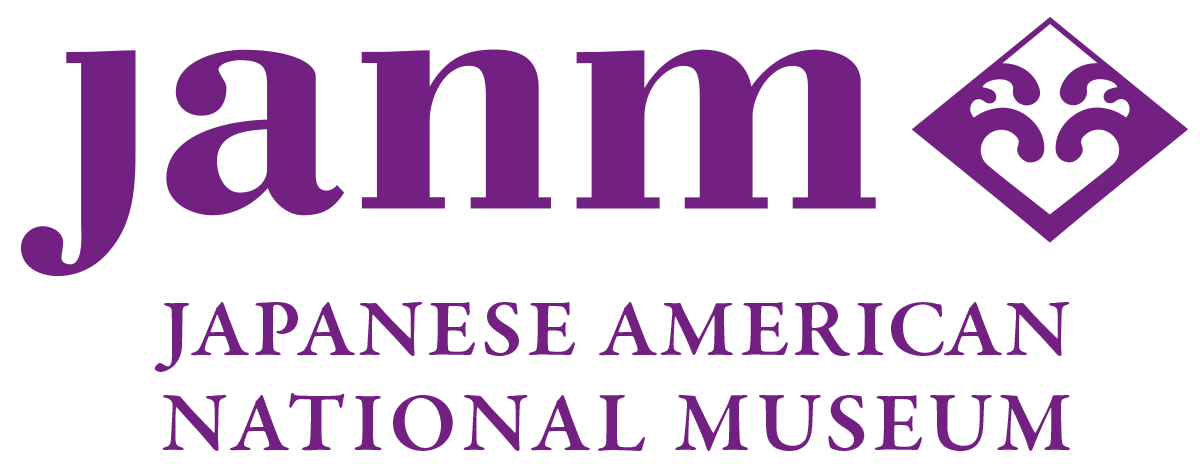FOR IMMEDIATE RELEASE - January 1, 1999
PRESS CONTACTS:
Chris Komai - mediarelations@janm.org - (213) 625-0414

CALIFORNIA AFRICAN AMERICAN MUSEUM, CHINESE AMERICAN MUSEUM, SELF HELP GRAPHICS TO JOIN JAPANESE AMERICAN NATIONAL MUSEUM AS “FINDING FAMILY STORIES” PARTNERS
LOS ANGELES—The California African American Museum, the Chinese American Museum and Self Help Graphics & Art, Inc. have agreed to become participants in Finding Family Stories, a three-year arts partnership project organized by the Japanese American National Museum and funded in its second phase by the Los Angeles Cultural Affairs Department.
The three institutions will work with the Japanese American National Museum on identifying artists and creating art exhibitions and educational and public programs under the theme of “Finding Family Stories.” However, the ultimate goal is to foster greater understanding between the diverse communities through the interaction between the different artists and the participating institutions.
“The Japanese American National Museum is gratified to continue the Finding Family Stories arts partnership with our new partners, the California African American Museum, the Chinese American Museum and Self Help Graphics & Art, Inc.,” said Irene Hirano, Executive Director and President of the Japanese American National Museum.
“It is a joy to work in partnership with wonderful other people and institutions,” said Tomas Benitez, Director of Self Help Graphics. “Product is important, but it’s a project that affords a lot of process at the organization level. And that in itself is a lot of joy.”
“It’s wonderful that these very different organizations are now working together on a common goal,” said Jean Bruce Poole, Executive Director of Friends of the Chinese American Museum. “The more collaboration between Los Angeles museums, the better.”
Jai Henderson of the California African American Museum concurred, noting “We at the California African American Museum hope that Finding Family Stories will help the general public to understand that which unites all Angelenos obliterating boundaries of ethnic and institutional differences.”
Originally funded by the James Irvine Foundation, Finding Family Stories brought together institutions such as the Korean American Museum, Plaza de La Raza, the Watts Towers Arts Center (L.A. Cultural Affairs Dept.), the Santa Barbara Museum of Natural History and the Skirball Cultural Center. Three different art exhibitions were created.
Benitez observed that the project has the potential to create stronger relationships between the partners, encouraging them to support each other in future endeavors.
Hirano agreed. “Our earlier collaborations have shown that by working together as institutions, all the participants develop a clearer understanding of other communities, which leads to long-term working relationships,” she said. “We believe firmly that this enables each of our institutions individually and collectively to better serve our communities and build greater connections throughout our city. This is the strength of Finding Family Stories.”
In addition, the participants believe the project will give voice to diverse cultural perspectives through the works of visual artists, as well as promote greater public awareness and appreciation of America's ethnic and cultural diversity.
“Family stories are unique and when you put them together, they make a common matrix,” Benitez said. “It’s not at the sacrifice of uniqueness—it’s learning how to live as ourselves amongst each other. It’s sharing—it’s commonalties.”
“The Chinese American Museum hopes Finding Family Stories will inspire all Southern California to discover their heritages and preserve their family stories for future generations,” said Suellen Cheng, curator of the Chinese American Museum.
“The project has historically been a collaboration of different ethnic groups,” Henderson added. “In each of its three-year collaborations, it has increasingly widened its inclusion of different ethnic groups—all of which reflect the demographic make-up of Los Angeles.”
Benitez sees the arts partnership as a model for the future of Southern California. “It’s looking at who we are and what we must do to continue to live together in Los Angeles—at what is critical, what is gained and shared and given in that process,” he said. “Art and culture are a way to stimulate that conversation.”
Self Help Graphics & Art, Inc. is a community-based visual arts center founded almost 30 years ago. Its purpose was to create art that reflects the rich cultural values and spirit of the local Chicano community and to empower local Chicano artists while presenting their art to all audiences. It promotes the rich cultural heritage and contribution of Chicano art and artists to contemporary American experience and has traveled more exhibitions of Chicano art to more destinations nationally and internationally than any other art center. Self-Help instigated the local modern celebration of Dia de los Muertos (Day of the Dead).
The mission of the Chinese American Museum is “to foster a deeper understanding of America’s heritage by researching, preserving, and sharing the Chinese American experience in Southern California as a vital aspect of society.”
Originally chartered by the State of California in 1977, the California African American Museum began operations in 1981. Its primary mission is “to research, collect, preserve and interpret for public enrichment the history, art and culture of African Americans with emphasis on California and the Western United States.”
The Japanese American National Museum remains the organizing entity for Finding Family Stories. Founded in 1985, the National Museum’s mission is “to promote greater understanding and appreciation for America's ethnic and cultural diversity by preserving, interpreting, and sharing the experiences of Japanese Americans.” Having traveled exhibitions as far away as Okinawa and Brazil and across the United States, the National Museum has members and donors in every state and in 16 different countries.
For more information on Finding Family Stories, please call the Japanese American National Museum at 213.625.0414.
###
